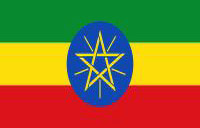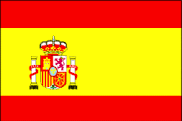
International Labour Organization
The Nobel Peace Prize 1969
'The only tripartite U.N. agency, since 1919 the ILO brings together governments, employers and workers of 187 member States, to set labour standards, develop policies and devise programmes promoting decent work for all women and men.'
International Labour Organization
by Morgan McGuirk 23 Mar 2020
The International Labour Organization (ILO) was established as the United Nations’ first specialized agency in 1919, to promote international labor standards and advance social justice. The ILO was awarded the Nobel Peace Prize in 1969 for improving peace among nations, bettering labor conditions internationally, and assisting developing nations make advances in technology.i
The ILO was originally an agency established after World War I by the League of Nations, the first international government organization founded for world peace. After the war, international labor laws that were developed helped further establish the ILO because the new laws pushed for labor reformation. In 1919, the ILO’s constitution was drafted to address these labor concerns. Samuel Gompers, the head of the American Federation of Labour, along with representatives from the United States, Belgium, Cuba, Czechoslovakia, France, Italy, Japan, Poland, and the United Kingdom all agreed to improve labor standards. More specifically, the ILO focused on maintaining peace and establishing social justice in many countries during the time of industrialization and economic expansion. Within the first few years of its development, the ILO focused on a variety of issues including the number of hours individuals work, unemployment and maternity protection, the minimum age for working, and night working for women and young persons.ii
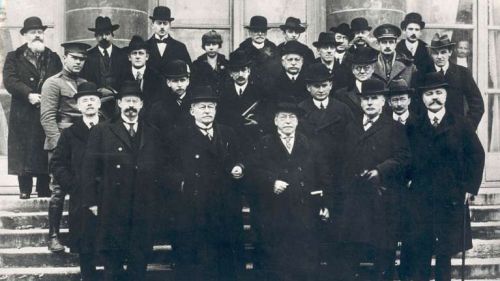
Members of the ILO’s first conference in Paris in 1919.
Source: the ILO
In the following years, the ILO played a key role in promoting fair labor practices throughout many major world events, including the Great Depression and World War II. In 1944, 41 countries adopted the ILO’s “Declaration of Philadelphia,” which extended the ILO’s constitution to reflect global needs that developed after the second world war. The ILO also formally became a special agency for the United Nations in 1946 when the League of Nations dissolved. Additionally, the ILO began focusing on developing countries that were now facing labor problems due to industrialization.
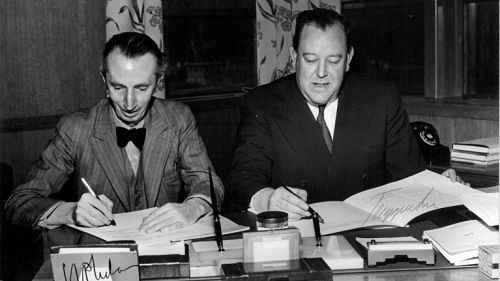
Edward Phelan, ILO Director-General and Trygve Lie, United Nations Secretary-General signing the United Nations agreement in 1946 to become its first specialized agency
Source: the ILO
For its efforts and to honor the 50th anniversary establishing the ILO, the ILO was awarded the Nobel Peace Prize in 1969, highlighting the ILO’s work of advocating for better labor conditions and providing developing countries with technical assistance to improve their working environments.iii On behalf of the ILO, the director, David Morse, spoke at the award ceremony, focusing on the organization’s future directions and stating that their work is never done:iv
The ILO is proud to have played its part in these achievements. But as we know and as you see from the horizon that I have sketched, the task is still far from finished. The goal of “social justice” which the ILO’s founding fathers wrote into the Treaty of Versailles has proved to be a dynamic concept. As soon as one problem has been successfully tackled, new and unforeseen problems which present a major challenge to the social conscience of mankind arise.
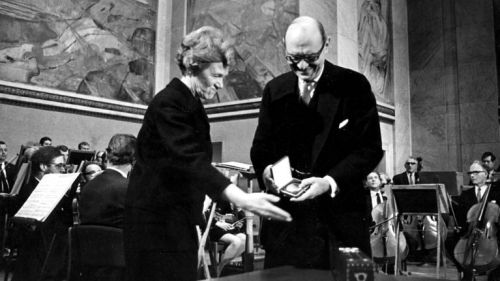
The ILO director, David Morse, receiving the Nobel Peace Prize on the ILO’s behalf in 1969
Source: the ILO
By 1971, the number of countries that were members of the ILO rose to 121. The ILO began focusing on new labor issues including forced labor, employment discrimination and establishing full-time employment opportunities. The ILO developed legislation to tackle these issues in each country that was an ILO member. Additionally, the ILO began working closely with the United Nations Development Program to establish programs in countries around the world to improve their labor practices in four key areas: human resource development, vocational training and managerial improvements, employee planning and promotion and the development of social institutions including labor administration and relations, rural employment development and occupational safety and health.v Since this time, the ILO has continued to pursue a variety of program endeavors. The ILO now provides labor statistics for over 200 countries and publishes data on relevant labor indicators including employment, educational attainment and labor costs. Additionally, the ILO founded the World Employment Program which helps train individuals for jobs in countries with rapid population growth. Today, the program is in 100 countries with more than 900 ILO employees working on over 300 projects. Finally, the ILO has established two educational institutions in Turin, Italy and Geneva, Switzerland for the purposes of research, education, and publication of labor issues.
i. “About the ILO.” International Labour Organization.
ii. Ibid
iii. “International Labour Organization Facts.” The Nobel Prize.
iv. Haberman, Frederick W. 1972. Nobel Lectures, Peace 1951-1970. Elsevier Publishing Company: Amsterdam.
v. Ibid. “International Labour Organization Facts.”
Discover Your Abilities and Aspirations!
 $10 $25 $50 $100 Other
$10 $25 $50 $100 Other
Tax Exempt 501(c)3 Non-Profit Organization
Any Currency
“…the peace that is found in libraries and laboratories…” - Louis Pasteur
Copyright © 2023 Ganga Library Inc. All Rights reserved.;

Photo: Wikipedia
Name: International Labour Organization (I.L.O.)
Founded: 1919 in Geneva, Switzerland
Residence at the time of the award: Geneva, Switzerland
Portion of Cash: 1/1
Essay



